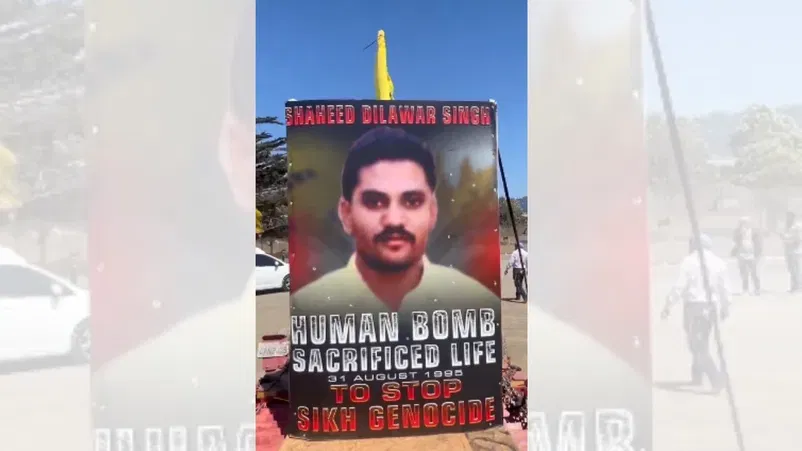In recent developments, Canada has witnessed a surge in anti-India protests led by pro-Khalistan extremist groups. One notable event took place in Vancouver, where participants paid tribute to the assailant responsible for the assassination of former Punjab Chief Minister Beant Singh in 1995. The rally featured graphic representations of the murder, including bloody images of a car and photographs of the deceased chief minister.
During the procession, slogans glorifying the bombing that killed Beant Singh were displayed, along with posters dedicated to the suicide bomber, Dilawar Singh Babbar. Beant Singh was assassinated on August 31, 1995, and the tribute in Vancouver marked a controversial reenactment of this tragic incident.
Prior to this, a rally led by Inderjeet Singh Gosal took place in Toronto, where supporters of the Khalistan referendum were referred to as the “progeny” of Babbar Singh, further polarizing sentiments around this contentious issue.
Pro-Khalistan Demonstrations in Vancouver
According to media reports, Gosal, who is a close aide to Gurpatwant Pannun, a key organizer of the Khalistan referendum and general counsel for Sikhs for Justice, was warned about potential threats to his life by Canadian police. This caution follows a troubling trend of violence linked to the pro-Khalistan movement in Canada.
The Royal Canadian Mounted Police (RCMP) and Ontario Provincial Police had issued earlier alerts due to rising tensions. A particularly alarming incident occurred last year on June 18, when Hardeep Singh Nijjar was assassinated in broad daylight in British Columbia. The banned terrorist organization Babbar Khalsa International claimed responsibility for a bombing in Chandigarh that killed 17 people, highlighting the ongoing violence associated with anti-India activities.
Controversial Displays in Parades
On June 9, a parade in Brampton, part of the Greater Toronto Area (GTA), controversially featured effigies of Indira Gandhi being shot by her bodyguards. Posters in this procession depicted claims about her assassination date, October 31, 1984, and evoked the backlash that followed her death.
Canadian Government’s Stand on Violence
This parade commemorated the 40th anniversary of Operation Blue Star, during which the Indian army entered the Golden Temple complex in Amritsar to eliminate Khalistani extremists, including their leader, Jarnail Singh Bhindranwale. This protest followed a similar demonstration outside the Indian Consulate in Vancouver just three days prior, prompting Canadian Public Safety Minister Dominic LeBlanc to state that promoting violence in Canada is never acceptable.
Last June 4, a similar portrayal occurred during a Shaheedi Diwas event in the GTA, reflecting on the aftermath of Indira Gandhi’s assassination, which led to widespread anti-Sikh riots in Delhi and other parts of India, resulting in thousands of deaths and massive looting.
